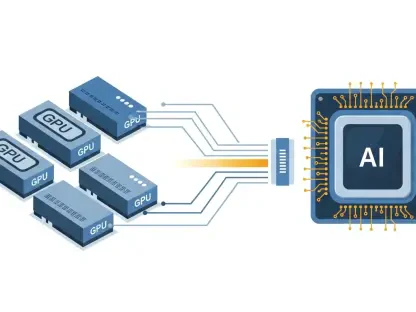Laurent Giraid, with a robust background in artificial intelligence, brings a deep understanding of machine learning, natural language processing, and AI ethics to the table. These fields are critical as cybersecurity increasingly relies on AI to counter sophisticated threats. His insights provide a unique perspective on how AI can revolutionize security operations.
What inspired the founding of Prophet Security, and how did the idea for autonomous AI systems in cybersecurity come about?
The inspiration for Prophet Security stems from the escalating frequency and complexity of cyber threats. We realized that traditional methods of cybersecurity, which heavily relied on human intervention, couldn’t keep pace. The idea for autonomous AI systems came from observing these challenges and envisioning a solution that could respond to threats at machine speed, enhancing both efficiency and effectiveness without human dependency.
Can you explain the difference between “agent-versus-agent” and human-versus-human warfare in the cybersecurity context?
In cybersecurity, “agent-versus-agent” warfare is a paradigm shift where AI systems are both the defenders and attackers. This contrasts with the human-versus-human scenario, where humans manage both offensive and defensive operations. In “agent-versus-agent,” AI systems can process vast amounts of data, identify threats, and initiate responses independently, effectively outpacing traditional human-driven methods.
What are the main limitations of the current “copilot” AI tools on the market, and how does Prophet’s approach differ?
Current “copilot” AI tools require extensive human interaction for initiating queries and interpreting data. These systems act more like sophisticated assistants rather than autonomous entities. Prophet’s approach differs by fully automating the threat detection and response process, allowing our AI to perform investigations and conclusions independently, reducing the manpower needed to manage cybersecurity operations.
Can you provide an overview of the new features in the Agentic AI SOC Platform?
The Agentic AI SOC Platform is designed to cover all aspects of security operations. It includes the AI SOC Analyst, AI Threat Hunter, and AI Detection Advisor, among others. These features enable the system to autonomously hunt for threats, conduct comprehensive analyses, and provide advisories on threat detection, enhancing the depth and speed of response.
How did your background and previous experiences at StackRox and Red Hat influence the development of Prophet Security?
My experiences at StackRox and Red Hat provided crucial insights into the complexities of security challenges faced by organizations. Witnessing these issues firsthand highlighted the capacity crisis within security teams and the need for a more autonomous solution. This background was instrumental in shaping Prophet Security’s focus on utilizing AI to meet these demands effectively.
Can you elaborate on the capacity crisis that security teams are currently facing?
Security teams are overwhelmed by the sheer volume of alerts they receive daily, often reaching around 960 alerts for an average organization. Due to resource constraints, up to 40% of these alerts may go uninvestigated. This capacity crisis stems from both an increase in threats and a shortage of skilled personnel, making it difficult to manage with traditional methods.
How does Prophet’s AI SOC Analyst improve investigation efficiency and response times?
Prophet’s AI SOC Analyst significantly speeds up the investigation process by autonomously identifying and responding to threats in near real-time. This automation not only reduces the time spent on manual investigations but also allows security teams to quickly address the 96% of false positives, focusing on genuine threats instead.
Why do you think there’s such a significant gap between the number of security alerts received and the number investigated?
The gap is primarily due to the overwhelming volume of alerts and the limited capacity of human teams to address each one. Many alerts turn out to be false positives, leading to inefficiencies that strain resources and result in potentially critical threats being overlooked.
Can you discuss the talent gap in cybersecurity and how Prophet Security addresses this issue?
The cybersecurity industry is experiencing a critical talent shortage, with millions of open positions globally. Prophet Security addresses this gap by reducing the dependency on human resources through AI-driven automation, allowing existing teams to focus on more strategic, high-value tasks that machines cannot yet handle.
What is the significance of reducing false positives by 96%, and how does this impact a security team’s operations?
Reducing false positives drastically enhances operational efficiency by allowing teams to concentrate on actual threats rather than spending time on non-issues. This reduction streamlines workflows, minimizes wasted efforts, and ensures that security teams can use their skills where they are most needed.
How does Prophet’s agentic AI differ from reactive copilot systems?
Unlike reactive copilot systems, which rely on human initiation, Prophet’s agentic AI starts investigations as soon as an alert is triggered. It autonomously gathers data, analyzes evidence, and reaches conclusions, providing a proactive approach to threat management without requiring constant human input.
Can you explain the process your AI system follows when an alert is triggered, from investigation to conclusion?
Upon triggering an alert, the AI system immediately begins collecting data relevant to the incident. It then processes this information using trained algorithms to analyze the situation, determine the level of threat, and decide on an appropriate response, all while maintaining a detailed audit trail of its operations for verification purposes.
How does Prophet ensure transparency and explainability in its AI decision-making processes?
Prophet maintains transparency through rigorous evaluation processes and a retrieval-augmented generation architecture. This framework ensures accuracy and provides a clear audit trail of each decision, which security teams can review to understand the rationale behind the AI’s conclusions, building trust in the system.
Could you discuss Prophet’s use of multiple AI models, such as those from OpenAI and Anthropic?
Using a variety of AI models allows us to select the most effective solution for each specific task. By leveraging diverse proprietary and external models, such as those from OpenAI and Anthropic, Prophet can adapt to varying challenges and ensure the highest level of precision and performance in cybersecurity operations.
What steps does Prophet Security take to prevent AI hallucinations?
To prevent AI hallucinations, Prophet employs an extensive evaluation framework alongside a carefully designed retrieval-augmented generation architecture. This approach helps maintain consistency and accuracy, crucial for maintaining security team trust and ensuring reliable AI performance.
How does Prophet’s single-tenant architecture benefit customer data security and privacy?
The single-tenant architecture ensures that customer data is stored and processed in isolated environments, greatly enhancing privacy and security. This method prevents data from being inadvertently shared or used to train AI models, complying with strict privacy standards while protecting sensitive information.
What feedback have early customers like Docker provided regarding the integration and efficiency of Prophet’s systems?
Customers like Docker have reported significant improvements in security workflow efficiency and response times. They’ve noticed reduced noise in alert management and a more streamlined process, which allows their teams to focus on critical security issues rather than getting bogged down by false positives.
How does the integration of Prophet with existing security tools work?
Prophet integrates seamlessly with existing security tools by acting as an independent AI SOC platform that can triage, investigate, and respond to alerts across different systems. This integration facilitates more comprehensive security coverage without disrupting existing infrastructure.
Why is Accel’s investment in Prophet Security significant, and how did it come about given you were not seeking funding?
Accel’s investment is a testament to the validity and potential of Prophet’s approach to cybersecurity. Even though we weren’t actively seeking funding, their interest underscores confidence in our technology and its impact on the industry, enabling us to expand our platform capabilities further.
What future expansions and developments does Prophet plan for its AI platform?
Looking ahead, we plan to enhance our existing modules and introduce additional components to further support security operations. We aim to continue scaling our platform, incorporating new AI technologies that address emerging cyber threats while maintaining our focus on transparency and reliability.
How does Prophet’s “role elevation” philosophy reframe the narrative around AI potentially displacing cybersecurity jobs?
Our “role elevation” philosophy emphasizes enhancing human capabilities rather than replacing them. By automating routine tasks, AI allows cybersecurity professionals to focus on more complex issues, assisting their career development and enabling them to contribute more strategically to organizational security efforts.
What strategic roles do human experts still play in a cybersecurity landscape dominated by AI?
Human experts remain crucial in strategic oversight, complex decision-making, and areas where nuanced judgment is vital. While AI can handle many tasks, human intuition, and experience are indispensable for assessing nuanced situations and evolving security strategies.
How do you envision the arms race between AI attackers and defenders evolving in the future?
As both attackers and defenders increasingly rely on AI, the arms race will likely focus on technological sophistication and adaptability. The ability to innovate and quickly integrate the latest advancements will be key in maintaining an edge against evolving threats.
How do you anticipate Prophet’s solutions addressing the dual pressures of increasing cyber threats and talent shortages?
Prophet’s autonomous solutions aim to alleviate the burden on human analysts by conducting investigations independently. This efficiency allows human experts to focus on strategic decision-making and complex problem-solving, thus addressing both cyber threat proliferation and the cybersecurity talent shortage.
What are the potential implications of widespread adoption of agentic AI systems for the broader cybersecurity industry in 2025?
The broad adoption of agentic AI systems could lead to a paradigm shift in cybersecurity. As more organizations implement autonomous solutions, the industry might see a reduced need for entry-level cybersecurity roles, with a greater focus on advanced threat analysis, strategic planning, and policy development, effectively transforming the industry landscape by creating more specialized roles that work alongside AI systems.









